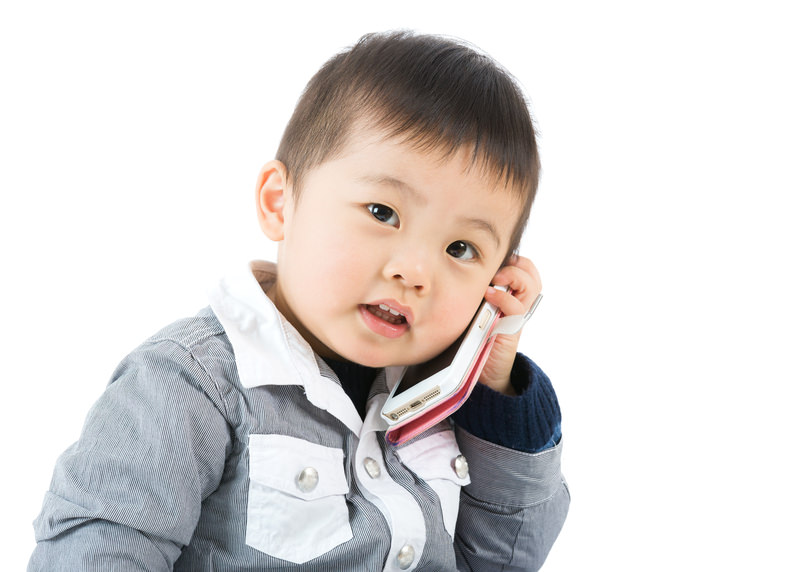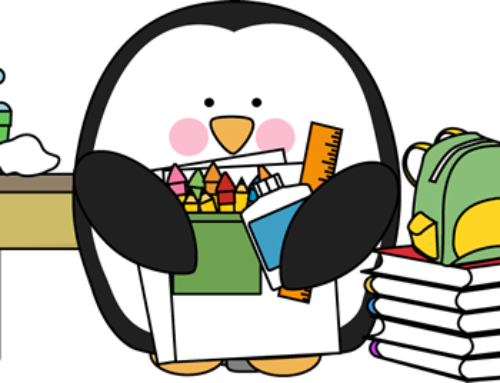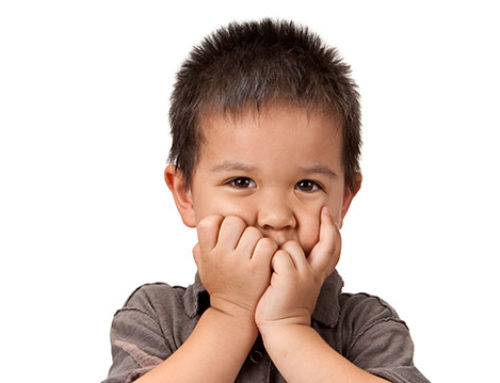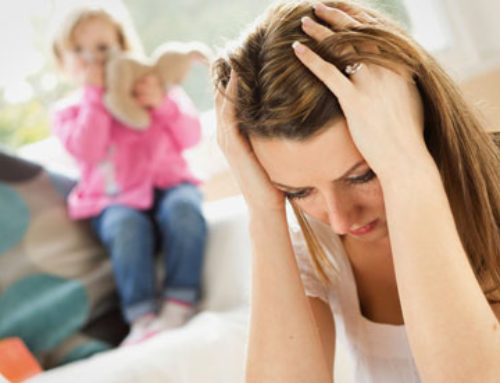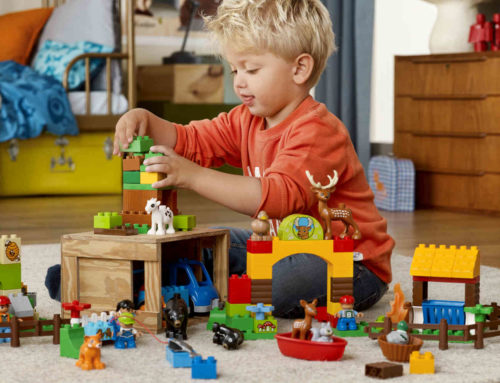Hearing your child say their first word is an incredibly exciting thing. But what if you are patiently waiting… and waiting and WAITING, and it just doesn’t seem to come? Or what if they have already said their first word (and maybe learnt a few more words too) but now seem to have hit the brakes? How do you know what’s normal and what’s not?
Many people think their child’s first word signals their first step on the road to communication. However this is not the case. Your child started communicating the very first time they looked at you. They continued on the communication road as they smiled for the first time, starting cooing, babbling and using gestures such as waving, pointing and reaching their arms up for you to pick them up. These are the skills that have got them to the point where they are ready to learn how to “talk”. The first word is just the next exciting chapter!
When will it happen?
We often hear proud parents telling us that little Johnny’s first word was “mama” (or “dada”) and that he said it at 6 months! Well played Johnny, well played! I don’t have the heart to tell them that it probably wasn’t a real word.
On average, children say their first true word around 12 months of age. However, for some it may be as early as 8 months or as late as 16 months. The age of the first word has no correlation with intelligence, so don’t worry if your child is on the end of the “normal” range.
How do you know if your child has a real word?
In Johnny’s case the little guy was probably just having fun babbling “mamama”. He may have said it while looking at his mum, which is why she has remembered that as his first word, but at that age he probably also said it while looking at his toys on his play mat, while putting his fingers in his mouth and while splashing dad in the bath.
To count as a real word…
- The word has to resemble the adult version of the word. It does not have to be exactly the same (because it takes a few years for children to learn how to produce all the speech sounds of their language anyway) but it needs to be recognizable. So if a child points to a duck and says “mamoo”, we wouldn’t count that. If they pointed to the duck and said “da” however, we have a word! (So long as it meets the next criteria).
- The word must be used consistently for the same person, object or event. For example, a 6 month old saying “nana” while they play with their toys at home is most likely just babbling. Whereas a 10 month old who says “nana” while looking at their nanna when she has come to visit, is most likely a real word.
When your child has used a word at least 3 times in 3 different situations without hearing it first, then you can pretty safely say it’s a real word.
What do first words sound like?
While most parents hope they will be the subject of their little treasure’s first word, sometimes “mama” or “dada” just isn’t on the cards! My son’s first real word was “ball” and my daughter’s was “up”. Thanks guys!
Most first words use a sound the child has previously said while babbling. The most common sounds being… p, b, d, t, m and n.
Most first words are very short and simple. The most common word shapes are a consonant + vowel (e.g. “no”), a vowel + consonant (e.g. “up”) or a consonant + vowel that is repeated (e.g. “dada”).
How quickly will they learn new words?
Whilst the overall growth rate will vary from one child to another, it may also vary at times for the same child. They may have bursts of new words and then plateau for a while before having another big burst.
Generally speaking, by 18 months most toddlers use 50 different words and some two-word combinations. There is a period of rapid vocabulary growth after 18 months. By 24 months most toddlers will have a 200 – 300 word vocabulary. However, vocabulary sizes between 50 and 550 words are considered to be within the average range. The first 50 words marks an important milestone because it is at this point that a child begins to combine words.
You should contact a speech pathologist if your child has less than 10 words at 18 months or less than 50 words by 24 months of age. Click here for more information on 10 red flags of speech and language development.
An important note:
I have often had people tell me that I must be mistaken when I talk about how many words 18 month olds and 2 year olds might say. They tell me that their family doctor/ paediatrician/ baby health nurse etc told them that 10 words for an 18 month old is normal. Additionally, if you live in NSW, you will also see in your child’s personal health record (the Blue Book) that the 18 month old checklist talks about 5-10 words and the 2 year old checklist references 20 words as being typical.
It is important to note that those are screening guidelines used by physicians to find the children who are outside the typical range. Because development is so varied, there is a big range! Fewer than 10 words at 18 months and fewer than 50 at 24 months would suggest a potential need for intervention. But, 10 and 50 are not the average number of words *most* children have at those ages. Rather they are the outer limits of what would be considered ‘typical’. Hope that helps!
What kind of words will they say?
When toddlers learn new words they tend to be related to familiar objects, events and relationships. Some words will be learnt incidentally, as they are heard in everyday interactions, routines and activities. For example, “Let’s go have a bath. Come on, socks off, shirt off, pants off, nappy off. Now it’s bath time!”
Other words will be taught to the child explicitly. For example, “Look Jenny, there’s a cat!”. Furthermore, some words may emerge and then disappear temporarily as the child’s interests change.
At least 50% of a toddler’s first 50 words will be made up of nouns. That is, words that name people, places and objects. However, verbs increase as the toddler becomes more active.
Don’t forget that animal sounds such as “moo”, “baa” and “grrr”, as well as other sound effects including, “brrrm”, “beep-beep”, “choo- choo”, “weee”, “yay”, “uh-oh” and “ouch” also count as words!
Here’s a look at the different types of words that typically make up the first 50…
- 52% are words that refer to animals, toys, food etc. E.g. ball, book, car, doggie, banana
- 14% are words that refer to people. E.g. Mama, Daddy, Nanna, Fido
- 13% are words that refer to an action. E.g. go, up, push, play, fall down
- 9% are words that describe features or qualities of objects or events. E.g. hot, big, yukky, yum-yum, mine, dirty
- 8% are words that express feelings and indicate social relationships. E.g. no, yes, hi, bye-bye, please, ta
- 4% are words that fulfill grammatical functions. E.g. this, that, there, what, where
(It must be noted that although nouns are prevalent among the first words in most cultures, not all cultures exhibit these characteristics)
Where to from here?
The fun has well and truly started now! The more you talk with your child and play and explore together, the more words they will learn. Before you know it, single words will be making way for sentences! Don’t forget, in the early stages before a child says a new word, they will need to hear it many, MANY times! Be patient and let them try and imitate it only if they want to. Often it will not sound like the real word, but in their mind they have said it and it’s time to celebrate! Don’t pressure them to pronounce it correctly and if they don’t want to imitate it at all that’s ok too. Don’t pressure them. They’ll have a go when they are ready. As they get older they will start repeating things they have only heard once! The most important thing for them to learn now is that talking with others is fun!
Don’t forget to Like Modern Speechie on Facebook for more information and tips to help your child be the best communicator they can be!
References:
Goldfield, B. A., & Reznick, J. S. (1990). Early lexical acquisition: rate, content, and the vocabulary spurt. Journal of Child Language, 17, 171-183
Gotzke, C. & Sample Gosse, H. (2007). Parent Narrative: Language 13 – 24 Months. In L.M. Phillips (Ed.), Handbook of language and literacy development: A Roadmap from 0 – 60 Months. [online], pp. 1 – 8. London, ON: Canadian Language and Literacy Research Network. Available at: Handbook of language and literacy development
McLaughlin, S. (1998). Introduction to language development. San Diego, CA: Singular Publishing Group, INC.

